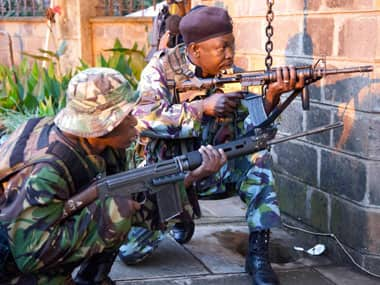With the siege of Westgate over, investigators concur that this attack by Al Shabab was not only its most dramatic ever and, in terms of global impact, beyond the scale of anything the Somali terror group has attempted in the past, but also bears the stamp of the Al Qaeda. US security officials piecing together evidence from eyewitness accounts, interceptions and intelligence have reportedly said the attack was well-planned. Also, the target selected – a mall that’s a symbol of affluence in a growing economy, frequented by foreigners, with a cafe owned by Jews on the ground floor, all together guaranteed to provide global exposure – and the 26/11 style attack point in the direction of the global jihadist network. Not only that, security agencies across are also in agreement that the Al Shabab – a UN report earlier this year pegged the total strength of the group at 5,000 – could emerge more vociferous after the Nairobi attack. A report in the Washington Post quotes the Africa deputy program director of thinktank International Crisis Group, EJ Hogendoorn, as saying the mall attack could lead to increased support from sympathisers of the Al Shabab. [caption id=“attachment_1127953” align=“alignright” width=“380”]  The attack at the Westgate mall. AP.[/caption] The newspaper quotes Hogendoorn as saying, “Whether this will arrest the group’s decline remains to be seen. The group has been weakened, and this is an attempt to reverse that trend.” In a detailed account of the transnational support for the Al Shabab, a CNN report said the group could well emerge stronger. Apart from training and weapons from the Al Qaeda in the Arab Peninsula (AQAP), it says, the Al Shabab gets support from the al Hijra, mostly non-Somali east Africans fighting in Nairobi and Mombasa and also closely linked to the only previous major attack by Al Shabab, the Kampala attack of 2010. “…Al Hijra is far from defeated. According to the UN report, it has established links with Al-Shabaab affiliates elsewhere in East Africa and is enlisting the services of fighters returning from Somalia “to conduct new and more complex operations.” Its leadership has become closer to al Qaeda through figures such as Abubakar Shariff Ahmed, known as “Makaburi,” who is said to favor large-scale attacks in Kenya in support of Al-Shabaab,” the report says. Several experts have also suggested that the long internecine wars within the Al Shabab, in which several commanders were killed including an American-born commander who had criticised Al Shabab emir Ahmed Abdi Godane also called Mukhtar Abu Zubair, could be a contributing factor for the attack, a kind of assertion by Godane, who was central to the group committing allegiance to the al Qaeda last year. Godane, termed a designated terrorist by the US, has a reward of $ 7 million on his head. Then there is also the foreign recruitment and fundraising that the Al Shabab is already known for. CNN’s national security analyst Peter Bergen, also director at the New America Foundation and author of a book on Osama bin Laden, writes in CNN: “Of all al Qaeda’s affiliated groups, the Somali terrorist organization Al-Shabaab has over the past several years had the deepest links to the United States. Some 15 Americans have died fighting for Al-Shabaab, as many as four of them as suicide bombers in Somalia, and an American citizen even took up a leadership role in the group.” Bergen says a study by the New America Foundation found 22 residents of Minnesota to have funded or fought with Al Shabab in the past four years, leading to crackdowns by the Justice Department and the FBI in a task codenamed Operation Rhino. Meanwhile, Reuters reported that the UN special representative for Somalia, Nicholas Kay, said on Tuesday that African troops battling the Al Shabab in the region need reinforcements, helicopters and armoured vehicles. According to the report, he drew attention to three ports along the Somali coast that he said were being operated by the Al Shabab for illicit trade, including export of charcoal, to finance themselves. “Kay will go to the United Nations in New York this week to press for more support for the military effort by the “under-resourced” Amisom, the African Union Mission in Somalia,” the report said, stating that though the country is physically the size of Afghanistan, the Amisom does not have even a single military helicopter for their campaign.
A report in the Washington Post quotes the Africa deputy program director of thinktank International Crisis Group, EJ Hogendoorn, as saying the mall attack could lead to increased support from sympathisers of the Al Shabab.
Advertisement
End of Article


)

)
)
)
)
)
)
)
)



